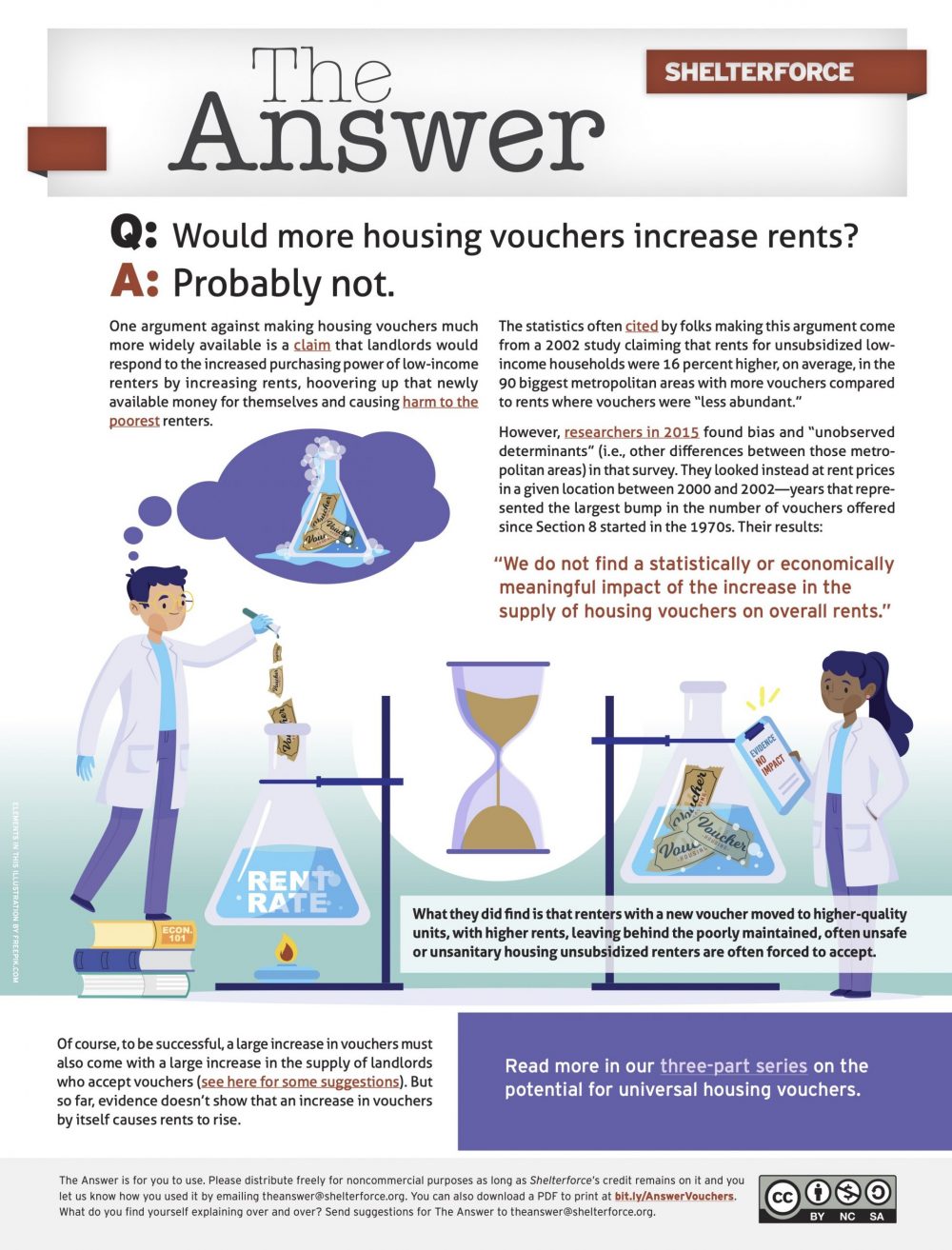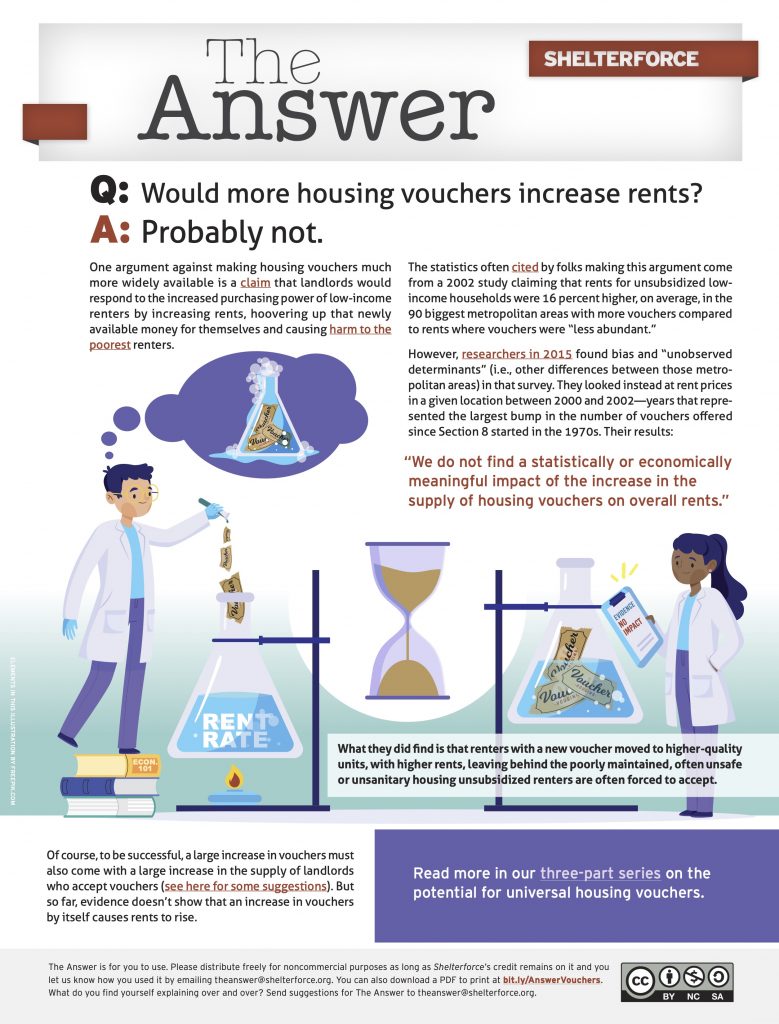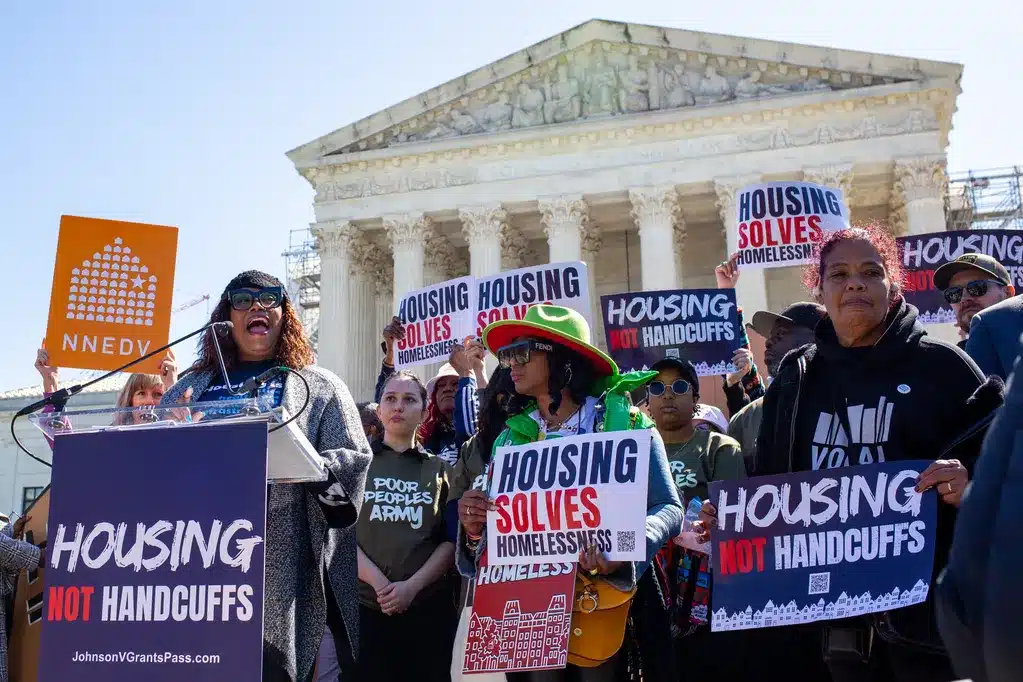One argument against making housing vouchers much more widely available is a claim that landlords would respond to the increased purchasing power of low-income renters by increasing rents, hoovering up that newly available money for themselves and causing harm to the poorest renters.
The statistics often cited by folks making this argument come from a 2002 study claiming that rents for unsubsidized low- income households were 16 percent higher, on average, in the 90 biggest metropolitan areas with more vouchers compared to rents where vouchers were “less abundant.”
However, researchers in 2015 found bias and “unobserved determinants” (i.e., other differences between those metropolitan areas) in that survey. They looked instead at rent prices in a given location between 2000 and 2002—years that represented the largest bump in the number of vouchers offered since Section 8 started in the 1970s. Their results:
“We do not find a statistically or economically meaningful impact of the increase in the supply of housing vouchers on overall rents.”
What they did find is that renters with a new voucher moved to higher-quality units, with higher rents, leaving behind the poorly maintained, often unsafe or unsanitary housing unsubsidized renters are often forced to accept.
Of course, to be successful, a large increase in vouchers must also come with a large increase in the supply of landlords who accept vouchers (see here for some suggestions). But so far, evidence doesn’t show that an increase in vouchers by itself causes rents to rise.
Read more in our three-part series on the potential for universal housing vouchers.
The Answer is for you to use. Please distribute freely for noncommercial purposes as long as Shelterforce’s credit remains on it and you let us know how you used it by emailing [email protected]. You can also download a PDF to print at bit.ly/AnswerVouchers.
What do you find yourself explaining over and over? Send suggestions for The Answer to [email protected].






I hope you’re correct.
I agree that a 10% or 20% increase in vouchers probably doesn’t effect market rents. Unfortunately, there has never been an increase in vouchers of the level that you propose with universal vouchers (assumedly for low income households exclusively).
Rents are more likely to increase under universal vouchers – probably a 100% to 500% increase in vouchers, depending on the market. In this case, I assume that low-income households will not be harmed because they will receive larger vouchers. The losers will be the government (higher subsidies) and moderate income renters (higher rents). Those who are just above the low income limits are already rent challenged in some markets.
I am truely hoping you can help me with housing, It has been so hard out here
Thank You